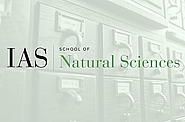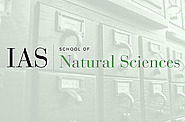Events and Activities
Explore current and upcoming events and activities happening at the Institute for Advanced Study.
May
02
2024
Institute for Advanced Study Astrophysics Seminar
Testing Galaxy Formation Models with Large-scale Surveys of the Milky Way Stellar Halo
Emily Cunningham
11:00am|Bloomberg Lecture Hall
May
02
2024
Princeton University Thunch Talk
Segmentation of Current Sheets in Magnetized Plasma Turbulence with Computer Vision
Trung Ha (University of North Texas)
12:00pm|Peyton Hall, Grand Central
May
02
2024
What is...?
What are rational and Du Bois singularities?
Wanchun Shen
1:00pm|Simonyi 101 and Remote Access
May
02
2024
Rutgers University Astrophysics Seminar
Weak lensing with a billion galaxies: new opportunities, challenges and strategies
Alex Amon (Princeton)
2:00pm|Serin Hall Rm W330, Rutgers and Zoom
May
02
2024
Joint PU/IAS Number Theory
Relative Langlands and Endoscopy
Spencer Leslie
4:30pm|*Princeton University, Fine 214*
May
03
2024
Joint IAS/Princeton/Montreal/Paris/Tel-Aviv Symplectic Geometry Zoominar
Symplectic Structures from Almost Symplectic Structures
Agustin Moreno
9:15am|Remote Access
May
03
2024
Princeton University Astrophysical Sciences 2024 Spitzer Lecturer
JWST: First Results on the Distant Universe in Context
Brant Robertson
11:00am|Peyton Hall, Peyton Auditorium
May
03
2024
PU High Energy Theory Seminar
Wormholes and Factorization in Exact Effective Theory
Sergio Hernandez-Cuenca
11:00am|Jadwin Hall, PCTS Room 407
May
03
2024
Princeton University Astroplasmas Seminar
Simulating Supermassive Black Holes Feeding and Feedback at the Meso-scale
Trung Ha
12:30pm|Dome Room, Peyton Hall or Zoom
May
03
2024
Princeton University Survey Science Discussion
Stellar-Dark matter halo mass relationship in UDS+COSMOS
Kumail Zaidi (Tufts)
2:00pm|Broadmead 102


